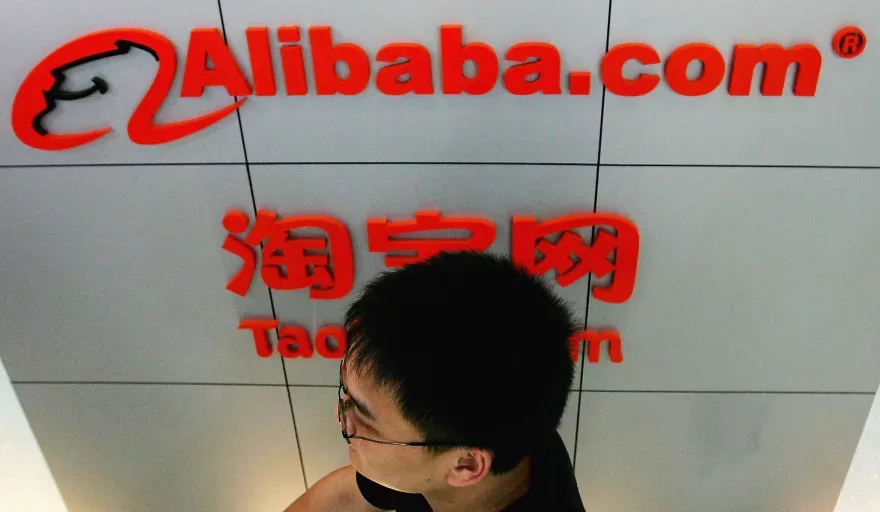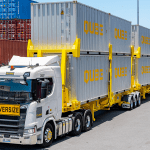Alibaba is China’s biggest e-commerce group and its profits the envy of companies around the globe.
According to Forbes the $40 billion company is set to list before 2015 and its rise is nothing short of meteoric given it took just ten years for the firm to become the number one e-commerce brand in China.
He is one of China’s most celebrated entrepreneurs and an icon of the country’s internet success, building a phenomenal business, which has created tremendous value for its shareholders over the years. Ma, who according to Forbes has an estimated wealth of $3.4 billion, however shocked many by declaring in January that he would step aside at the age of 48 from day-to-day operations. He insisted that he was getting too old to do the job properly and gave up the chief executive post in May, ceding the role to Jonathan Lu.
“I have this chance to take over Alibaba’s culture, fight for our dream,” said Lu. “This is really an honour. Alibaba been through a lot and our mission and values are what we need to uphold. We insist that customers are our number one priority. In the future, we will continue to uphold and pass on our values and mission.”
“I hope you can trust the new team and Lu just like you trusted me,” Ma said. “Ten years of being an entrepreneur has made me understand hardship, persistence and responsibility.”
The company is the biggest player in China’s fast-growing e-commerce market and operates online platforms Alibaba.com, Taobao (which means “searching for treasure” in Chinese and is China’s most popular e-shopping platform with more than 90 percent of the country’s online market for consumer-to-consumer transactions) and Tmall, which connect small sellers and major companies with consumers and business partners.
Its revenues come from advertisements on the websites and customer fees.
Yahoo, of course, has a 24 percent stake in the firm, after the e-commerce company bought back some of its shares last year, and included in the terms of that buyback were incentives for Alibaba to list its shares before the end of 2015.
The future is bright. Lu has taken charge of a company whose sales equal two percent of China’s GDP and is refocusing on mobile platforms to replicate its dominance with desktop computer users.
Alibaba is currently rolling out a smartphone operating system, buying a stake in China’s biggest Twitter-like service and getting $8 billion in loans.
It makes the likes of eBay and Amazon look small by comparison and boasts more than 24 million members in 200 countries, facilitating more than $5 billion in import/export transactions each year – everything from sleeping bags to cement mixers.
Through the Alibaba website, you can meet qualified suppliers (manufacturers and other sellers) and reach agreements on pricing, delivery, insurance, and even storage (if necessary). Then you can re-sell their products online.
Alibaba has achieved success where so many others have failed. Thousands of internet companies popped up in 2000 and Alibaba survived by focusing on customers instead of chasing investors, taking a long-term view.
It is the last man standing and recently invested 1.18 billion yuan to buy fund management company Tianhong Asset Management Co, giving it a 51 percent controlling stake in Tianhong, which is already in a partnership with Alibaba’s online payment affiliate Alipay. It also made a “strategic investment” in China’s Qyer, which offers an online platform for users to exchange information and make bookings, with a focus on international travel.
“We are confident that Qyer will be able to complement our travel platform, Taobao Travel, by providing our users with high quality travel-related services and content,” Alibaba spokeswoman Florence Shih said in a statement to AFP.
Earlier this year Alibaba said it would pay $294 million for a 28 percent stake in China’s leading digital map provider, AutoNavi, and it bought an 18 percent stake in China’s dominant microblog provider Sina Weibo for $586 million.
It is positioning itself for good reason. China is set to become the world’s biggest online market with online sales forecast to exceed $420 billion annually by 2020.
According to global management consulting firm McKinsey & Co, online sales are expected to reach between $420 billion and $650 billion, driven by a growing consumer class and the world’s largest population of internet users, now more than 500 million people.
“China is poised to become the world’s largest e-tailing market,” McKinsey said, adding sales in 2020 would match the current size of the U.S., Japanese, British, German and French markets combined.
China’s online retail sales reached $120 billion in 2011 and surged further to an estimated $190 billion to $210 billion last year. That put China second in the global ‘e-tail’ market, close to the U.S., the current world leader, which had estimated online retail sales of $220 billion to $230 billion in 2012, the McKinsey report said.
Online retail sales now account for five to six percent of total Chinese consumer transactions, the report called China’s e-tail revolution: Online shopping as a catalyst for growth added. “China could forgo the national expansion of physical stores commonly seen in Western nations and move directly to a more digital retail environment,” it predicted, stating that “China may have largely sat out the 19th-century Industrial Revolution, but as the explosion of its new consuming class continues to reshape 21st-century economic life, e-tailing and the Internet revolution have important roles to play.”
To learn more about Alibaba visit www.alibaba.com.
Image: © Getty
Copyright is owned by Asia Outlook and/or Outlook Publishing. All rights reserved.


























